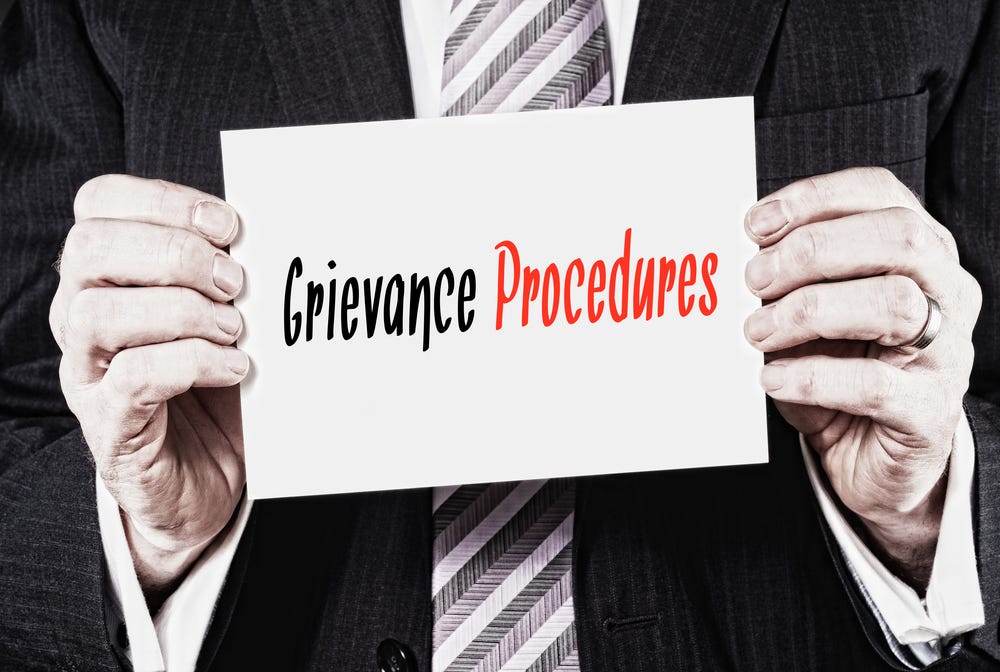E-Pluribus | November 6, 2023
Revenge is a dish best served in academia; just how serious is cancel culture? And fighting the Woke Savior Complex.
A round-up of the latest and best musings on the rise of illiberalism in the public discourse:
Dorian S. Abbot, Casey B. Mulligan: Grievance Training
The buzzwords “land appropriation” and “cultural genocide” are everywhere these days. But writing at City Journal, Dorian Abbot and Casey Mulligan say they are just smokescreens for revenge.
The newest chapter in grievance politics is being written in American schools. This emerging narrative of “land appropriation” and “cultural genocide” is one-sided, divisive, and contrary both to history and to widely accepted ethical and constitutional principles of individual accountability and due process.
[. . .]
In fact, the U.S. is an outlier among nations in that much of its land transfers to settlers and the government were negotiated and paid for. Take the experience of one of our families: George Abbot and others purchased the town of Andover from the Sagamore of Massachusetts in 1643. Two of Abbot’s sons later succumbed to an Indian attack while working the family’s land during King Philip’s War (1676), with one killed and the other taken captive. Of course, wars include atrocities on both sides, but the campus narrative of stolen land and oppressed, innocent natives is far from the truth.
In the area known today as Chicago, the first frontier settlers felt too vulnerable and decided to march back east in 1812. The Potawatomi ambushed them less than two miles from their original point of departure, Fort Dearborn, making a point of isolating the children and then tomahawking them to death. Most of the other settlers were killed, too; in one particularly gruesome episode, William Wells had his heart cut out and feasted on by the warriors. This event motivated the United States to negotiate the Treaty of Chicago with the local tribes, receiving Chicago-area land in exchange for money and western territory.
Land acknowledgments leave these “complexities” in the histories of Andover, Chicago, and elsewhere unspecified. The point of the exercise seems to be to desensitize youth to radical, revisionist, and revanchist claims, so that violence against latter-day civilian populations someday will seem like justified revenge. Consider, for example, the full-throated support for Hamas’s massacre of Israelis that we have seen recently from so many academics arguing for “decolonization.”
Land acknowledgments also wrongly treat “white people” and “Native Americans” as monolithic actors. Native American and Chicago-area resident Noel Manley recently called out the “intellectual dishonesty” of the land-acknowledgment narrative, which “follows an established Marxist pattern of applying a broad negative generalization . . . to belittle and destroy [a group’s] standing in the eyes of the community.” He sees parallels with historical “purges of political opponents and kulaks in Soviet Russia.” That process began with the demonization of a group of people (kulaks, or small landowners) who were urged to surrender their land to Marxist officials, purportedly for the benefit of landless peasants. When too many kulaks resisted, violence ensued, and the starvation of millions followed soon thereafter, as the once-fertile appropriated lands were mismanaged and Marxist officials confiscated food.
Read it all.
Jonathan Marks: Is Cancel Culture Just a Problem, or a Five-Alarm Fire?
At The Dispatch, Jonathan Marks reviews The Canceling of the American Mind, a book by the current president of the Foundation for Individual Rights and Expression (FIRE) and a FIRE alumnus. While Marks credits the two for some valuable insights, he’s not completely sold on their version of the cancel- culture phenomenon.
[Greg] Lukianoff and [Rikki] Schlott define cancel culture as “the uptick beginning around 2014, and accelerating in 2017 and after, of campaigns to get people fired, disinvited, deplatformed, or otherwise punished.” They also describe the resulting “climate of fear and conformity.” Lukianoff and Schlott choose 2014 because “something big changed in American society” around then. It was “as if a flock of demons was unleashed upon the world, and the first place they flocked was American college campuses.”
Their definition of cancel culture has a clear advantage over others: One can measure an “uptick.” But it also has two main disadvantages.
First, cancel culture is presumably not the uptick itself but rather whatever caused it. Consider the case of Will Wilkinson, fired from a think tank in 2021 after he flippantly tweeted, “If Biden really wanted unity, he’d lynch Mike Pence.” But here’s the twist: Wilkinson denies cancel culture exists, which mystifies Lukianoff and Schlott. To them Wilkinson demonstrates “willful blindness,” and, despite their aversion to rhetorical games, they all but call him a denialist without addressing his argument.
Wilkinson doesn’t think that his termination over a joke proves the existence of a phenomenon—cancel culture—that lumps together his firing with, say, the firing of a conservative radio host for criticizing Donald Trump, or the firing of a professor for criticizing her college’s COVID policy. To define cancel culture as a mere uptick is to paint those who question cancel culture as uptick deniers. But the debate over cancel culture is often less about whether some kinds of speech are more subject to punishment than they once were than about why the standards for what’s punishable have evolved the way they have.
Second, I doubt that cancel culture, however defined, landed at colleges in 2014 and spread from there. It can be true that an uptick began then, but a definition that doesn’t try to explain why leaves something to be desired.
Agreed, professors and their theories have helped to encourage left-wing suspicion of free speech norms. But Lukianoff and Schlott offer no theory for why a phenomenon that began quite suddenly among 18-to-21-year-olds in 2014 influenced major cultural institutions so rapidly. It seems at least as likely that colleges and universities were swept up in broader American trends. One is the “Great Awokening,” a sharp shift left among white liberals on race. Another is increasing political polarization and animosity, which might explain why the ever-present urge to censor one’s enemies is now so powerful on both the right and the left.
Read the whole piece.
David Josef Volodzko: The Black Activist Trying to Save Oakland from ‘Phony’ Woke Progressives
Progressives often see themselves as white knights riding in to save the oppressed. Oakland, California, resident Seneca Scott doesn’t see it that way, David Volodzko writes for The Free Press. Though Scott is fighting progressivism on its home turf, he believes the pat answers offered by traditional Democrats aren’t enough; real change will require people of all races and classes to come together, he argues.
You might think a black activist and union organizer in the Bay Area would be a progressive who supports Black Lives Matter and defunding the police, but [Seneca] Scott rejects both movements. In fact, he says the defund debate is split along racial lines.
“The black people who live in the impacted neighborhoods were pretty much united in the fact that they did not want to cut the police budget,” he says. “The white people in affluent neighborhoods were pretty much united in that they did want to.”
Scott calls himself a “post-partisan solutionary.” Though he used to be a leftie, he now unabashedly calls out “phony” progressives on Twitter (now X) for being “dismissive towards Black and Brown people.” He says he doesn’t do left-right politics and told me that both parties now cater to elites.
That’s why Scott has started the nonprofit Neighbors Together Oakland.
“We’re building a multiracial, multi-class coalition. We’re not using race as a divider, but as a uniter,” said Scott. “The Democrats wrongly demonize everybody who’s a white man or say every single thing that’s wrong with society is white supremacy. It’s bullshit. But they’re doing it on purpose because they know if rural white people and inner-city black people ever started voting together, we would be able to take our republic back.”
[. . .]
Scott first ran for elected office in Oakland in 2020, vying for a seat on its city council. At the time, he supported the idea of defunding the police, but soon changed his mind.
[. . .]
Though he lost that first election, he sued the city in 2021 after the council voted to remove homeless encampments after six months but failed to enforce the policy. “Oakland no longer has a homeless problem in the traditional sense,” he says. “Yes, there are still many people who are homeless because they are poor, but the majority are now drug addicts and drug tourists.”
That same year, in the wake of Black Lives Matter protests over George Floyd’s death, city leaders voted to defund the police, slashing the force’s budget by $18 million over the next two years.
One of the city’s leading voices in the defund movement was council member Sheng Thao, who went on to become Oakland’s mayor. Now, Scott says, “our crime labs don’t work. We have to go out and subcontract to other places to do DNA tests or fingerprint tests. And sometimes they deny us.”
He adds, “We used to have the best CSI in the state.”
Read it all here.
Around Twitter (X)
Peter Schweizer blasts Stanford’s hypocrisy on harmful language:
Paul Sherman thinks John Fetterman is full of soup about “milk.” (Click for the whole thread.)
And finally, Wesley Yang on the sorry state of civil rights:









